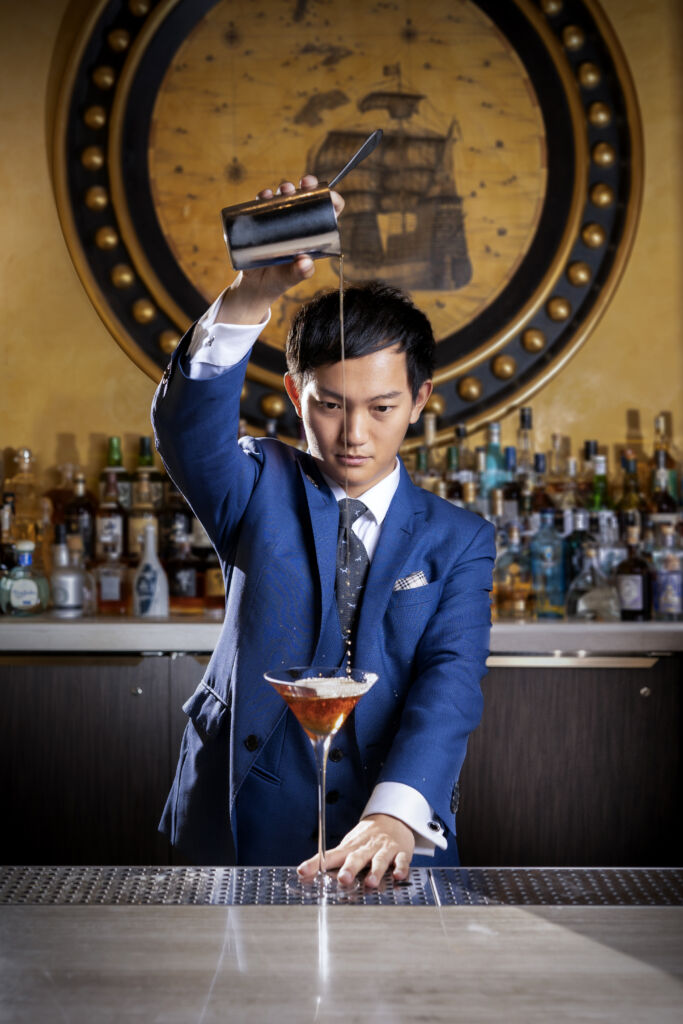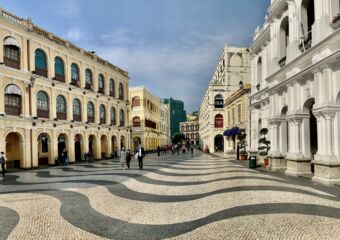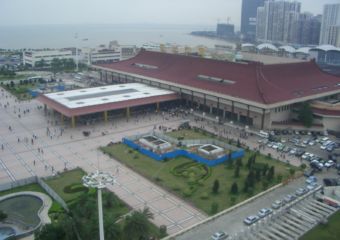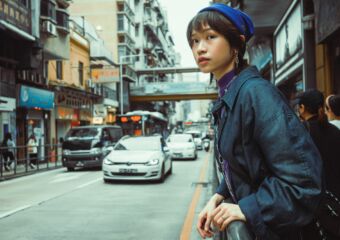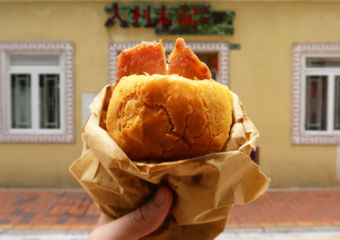Award-winning mixologist and Bar Manager at Bar Patuá in MGM Cotai Paul Zhang has been trailblazing the mixology grounds in and outside motherland China for nearly a decade. Creative, prolific, and ambitious, Paul believes that having the right attitude is paramount if one is to succeed in the mixology field. Inspired by the rich Chinese culture, and through its stemming art forms such as poetry, Paul creates unique cocktails imbued with history. His collection of signature cocktails including Lion Cocktail, Goldfish Lane no. 8, Wintersweet, and 24 Solar Terms specialty cocktails are up for sips at Bar Patuá, designed by the young mixologist. We spoke to Paul to learn more about his achievements, philosophy, and the stunning Bar Patuá.
Please tell us about your background and how you have paved your way into the mixology universe.
My father introduced me to it. He worked in Europe in the Food & Beverage industry for 10 years, first in Denmark, followed by Frankfurt. He is a chef and worked as a Chinese cuisine head chef and eventually opened his own restaurant. When he returned to our hometown, Tianjin, I was enjoying my summer break from high school. My father told me that back in Europe everyone would get a part-time job during summer, while I was spending my days playing video games with friends (laughs). He offered to teach me about food and said I could become a chef like him or even a mixologist. At that time, a mixologist belonged to high-end luxury properties only. I wasn’t familiar with this concept back then and that sparked my interest.
How do you prefer to be called–a mixologist or bartender–and why?
I’ve been working in the beverage industry for 10 years now. From my experience, the term mixologist is usually used in the UK and Europe, while in America people often refer to the profession as “bartender”. To me, they’re one and the same. Currently, my position at MGM Cotai is Bar Manager. This means I’m not the one mixing up every single cocktail behind the bar, since I’m overseeing overall operations. But if a guest comes in and asks for me to make a cocktail, I’m very happy to do it. I enjoy being behind the bar mixing cocktails.
You’ve won several international competitions. What do you consider your biggest career achievement?
I’ve won several competitions both in China and globally, but for me, when I join a competition, it isn’t about winning, but about learning. I like to observe the other players; how they create a cocktail, how they introduce and present it. I was most proud to win the 2017 Global Beefeater MXLDN competition in London. First, I was chosen in the regional competition to represent Northern China in Beijing, where each of the bartenders represented a different city in the country. Afterwards, I was selected as the national winner to represent China in the global final in London when I was based in Shanghai in 2018, competing against another 31 fellow bartenders each representing a country. I wore a Chinese-style uniform and presented a Chinese cocktail made with Beefeater 24 Gin. The next year I was invited as a guest bartender to present my Chinese cocktails in London at a five-star luxury hotel during London Cocktail Week while I was in town to attend The World’s 50 Best Bars announcement. This is the largest annual event in the global bar industry every year so being a guest bartender at that particular time was an incredible opportunity to showcase Chinese cocktails and my work.
What would you say are the three most important qualities for a bartender?
First would be passion of course. Second would be having the right attitude. When I became a bartender, more and more people were becoming bartenders too. Today, these fellow bartenders are bar owners. Unfortunately, they stopped creating cocktails and became more business-oriented as I saw in China. I still create cocktails and I want to push it even further, as well as to train more people. If you look at Japan for example, there are a lot of bartenders in their sixties and seventies, and they are still behind the bar. For me, this is about having the right attitude in this industry. The third is the eagerness to keep on learning.
What does it take for you to create a cocktail?
I’ve been working on Chinese cocktails for eight years now. In China, we have a very deep and rich cultural history that manifests in literary works and music. Chinese culture is my inspiration. I begin planning my full year of cocktails creations at the start of every year. In Bar Patuá we just started promoting a 24 Solar Terms special, based on the ancient Chinese solar cycle belief. This project involves 24 different specialty cocktails. For example, for the day that marks the start of the summer, Chinese people believe that it brings good luck to have bean cake. With this in mind, I want to bring the bean flavor into one of the Solar Terms cocktails, to be launched on that specific day.
Which ingredients inspire you the most, what do you love working with the most?
The focus isn’t on any single ingredient. Naturally, for my Chinese cocktails, I always think of using Chinese spirits, like yellow wine, rice wine, baijiu, and fruit liquor. Afterward, I’ll think about Chinese seasonal fruits and spices, like cinnamon sticks or Buddha’s hands (Chinese bergamot) or even tea leaves. Finally, I’ll think about Chinese glassware and a Chinese-inspired presentation. I take inspiration from all those elements. I have also studied Chinese medicine and the knowledge I’ve acquired is also brought into the cocktail creation process as well, seasonal and healthy ingredients are incorporated too.
I’ve recently created a new signature cocktail for both MGM properties in Macau dubbed Lion which took inspiration from the Lingnan culture and a particular poem by renowned Chinese poet Su DongPo, which depicts the lychee and the people’s love for this fruit in the Lingnan region. This cocktail is made with lychee puree, Guangdong-made baijiu, lemon, and lemongrass–it’s super fresh and summery! The sweetest lychees in China are found in Guangdong province plus the spirit is made in the province too, so it is a locally inspired cocktail, deeply connected to the rich culture in the region. Of course, the finishing yet powerful touch is a lion-themed presentation.
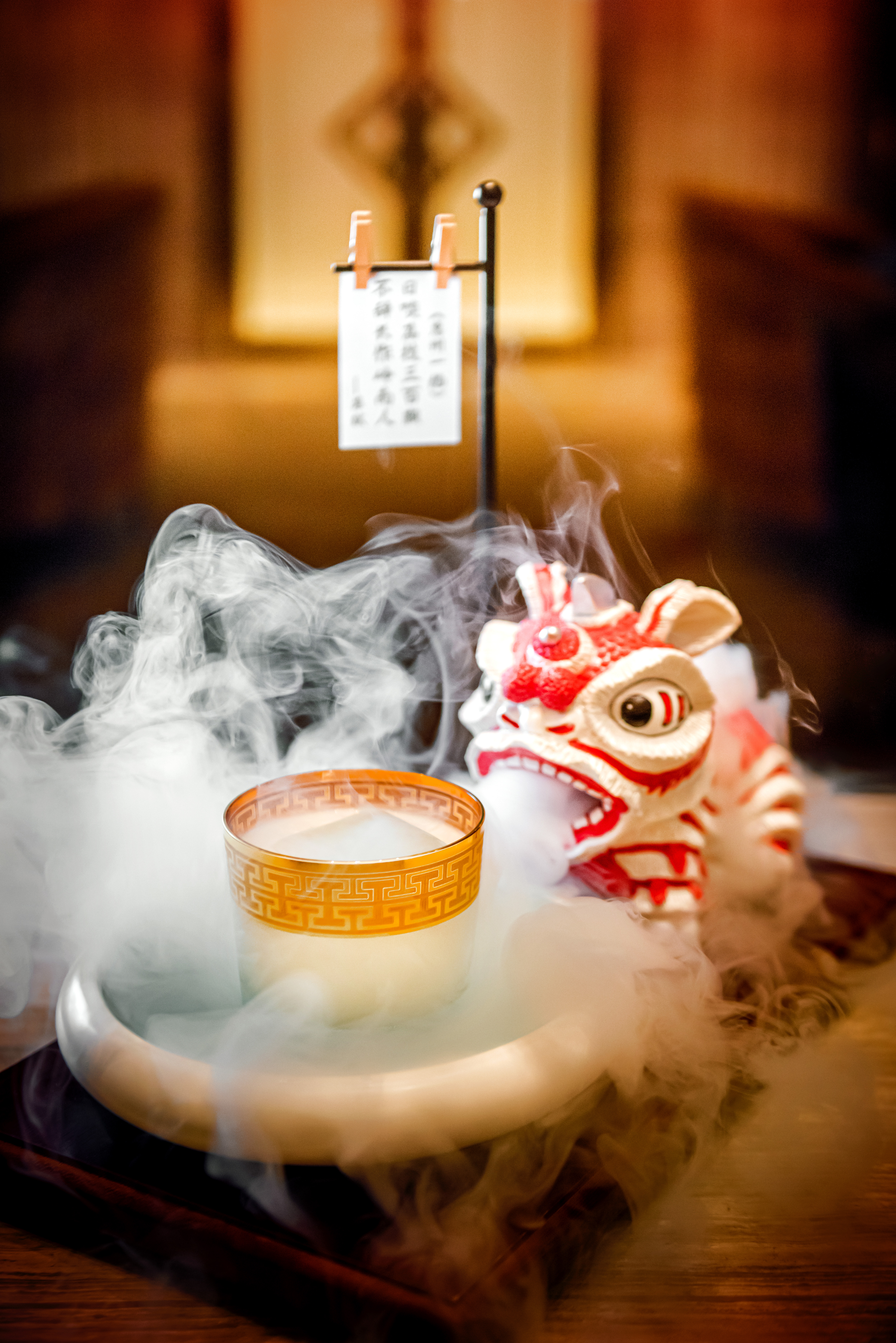
Lion Cocktail; Photo credit: MGM Cotai
You often mix Western and Chinese spirits and ingredients in your cocktails, creating unorthodox combinations. How do you make sure they balance instead of overshadowing each other?
I believe this comes with experience. When I started out I used moutai in classic cocktails, using 50ml of it. Guests would taste the cocktail but they didn’t like it, they claimed it was too strong. After that I started to learn more and more about classic cocktail concepts, going from martini, manhattan, and that kind of cocktail. Those are made with spirits mixed in with vermouth and herbal liquors. So I started to change my approach to cocktail creation, having a strong focus on the balance of taste.
I mix Chinese and Westerns spirits. We don’t need to constantly use moutai to create a Chinese cocktail. You can definitely make a Chinese cocktail with a Western spirit, as long as you still use Chinese ingredients and make a Chinese-inspired presentation. Take my winning cocktail Goldfish Lane no. 8 for example, I designed it for a gin competition. I used gin and combined it with Chinese tea and served it in a Chinese teacup along with a Chinese story to support it. It is unarguably a Chinese cocktail, one that shows a great deal of skill if I may add, and one that goes beyond the obvious.
You also often use baijiu. Would you say it’s the new gin or vodka in Asian mixology?
I like to say baijiu is baijiu. It’s China’s national spirit. Most people will find themselves drinking tequila during their college days. They drink it the Mexican way, with lemon and salt. You don’t hear anyone referring to it as Mexico’s gin. It’s just “tequila”. Baijiu should be called baijiu, it’s the most popular Chinese spirit.
You invest a lot of time and effort to create amazing original cocktails then guests come to your bar and ask for a Long Island iced tea. Does it disappoint you a little bit?
Not really to be honest. There’s not a substantial cocktail culture in China yet. People started drinking cocktails recently, in the last 15 to 20 years. Even within the pool of Chinese bartenders, not all of them will be able to tell you the story behind, say, a negroni. People are still learning about cocktails. That is why I believe we should share our knowledge with our guests and let them know what a classic cocktail is. It’s about education really. The guest won’t order something they don’t know anything about. I’ll say I have my own way of making a Long Island iced tea, or I’ll suggest they try out a classic cocktail based on their taste. If the guest likes the Long Island iced tea they might enjoy a gin fizz too or a zombie cocktail for example. After they try it out, if I get positive feedback, I’ll present a further suggestion of a cocktail I’m sure they’ll enjoy too. This is a curated experience we provide at Bar Patuá.
I also share everything I know with my bartenders. I went to Cuba in 2015 and learned how to make an authentic mojito, an extremely popular cocktail. In Cuba no one uses crushed ice, they use lots of rum, about 80ml of rum! They add a splash of soda and two spoons of sugar, it shouldn’t be too sugary. Plus a squeeze of lime and one mint leaf. It nails a perfect sweet and sour balance. At Bar Patuá all bartenders know how to make the real Cuban mojito. I’ve passed on what I’ve learned from the source. Now my team shares with our guests the story of this authentic mojito. Who would have thought, the only place people get to taste the real Cuban mojito in Macau would be at Bar Patuá?
Are there any trends in mixology that you find especially interesting? Trends that you don’t like?
I can’t name a particular trend I don’t like. I love to learn about new trends actually and I’m particularly interested in spirit trends. Between 2014 and 2016 there was a thriving gin trend in Hong Kong and Macau. You’d see those large copa glasses everywhere filled up with ice cubes and new gin brands from different countries and new tonics were being introduced. Thanks to this trend, I’ve learned a lot about this spirit and got to know gin makers from around the world. Even China launched its own gin brand. In 2019 I was in Berlin to attend Bar Convent Berlin. That year we witnessed a huge rum trend. Countless new rum makers from different islands were launching new rums, rums infused with spices, and all sorts of new approaches. I love tasting new spirits, learning about how they’re made and the stories behind them, and how these stories have inspired a cocktail. One trend I can say I’m not very interested in is the molecular cocktail.
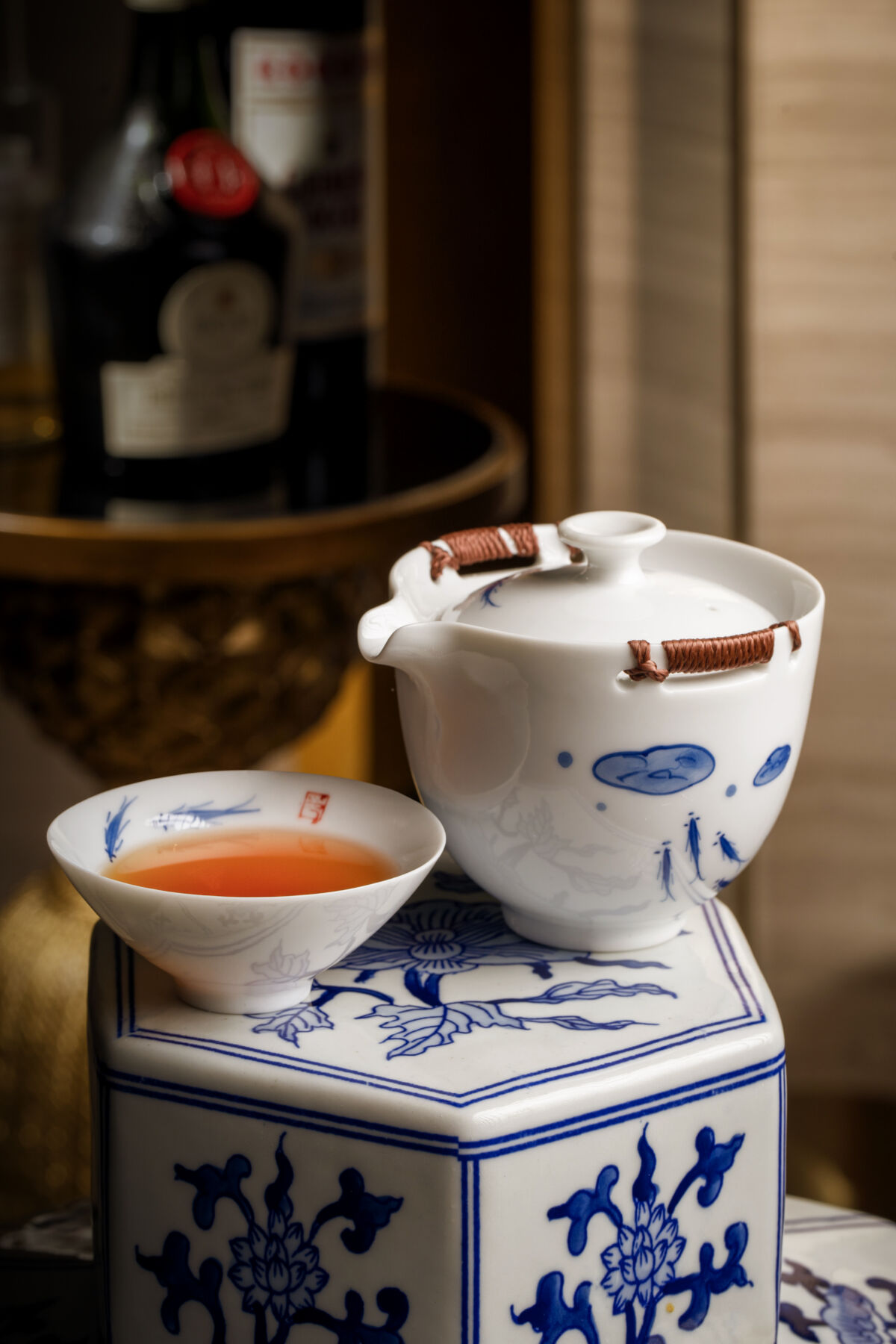
Wintersweet; Photo credit: MGM Cotai
What inspires you to keep updating, innovating, and creating new cocktails?
I studied literature in college and am fascinated by it and Chinese history. I read a lot. I was actually a history teacher back in Beijing. This is where my inspiration comes from and it allows me to keep on being creative and innovative.
In Chinese culture, we have four prosperous flowers known as the four gentlemen: bamboo, orchids, chrysanthemum, and wintersweet (plum). So I came up with this wintersweet cocktail for an Absolut vodka competition I won back in China in 2014. This flower grows wild in cold climates, out in the snow. Vodka is associated with colder weather too, it warms us up. So I combined Chinese plum liqueur with vodka and Italian herbal liqueur and poured it into a Chinese cup. Later on, I visited Absolut’s distillery in Sweden and it was such a cool experience.
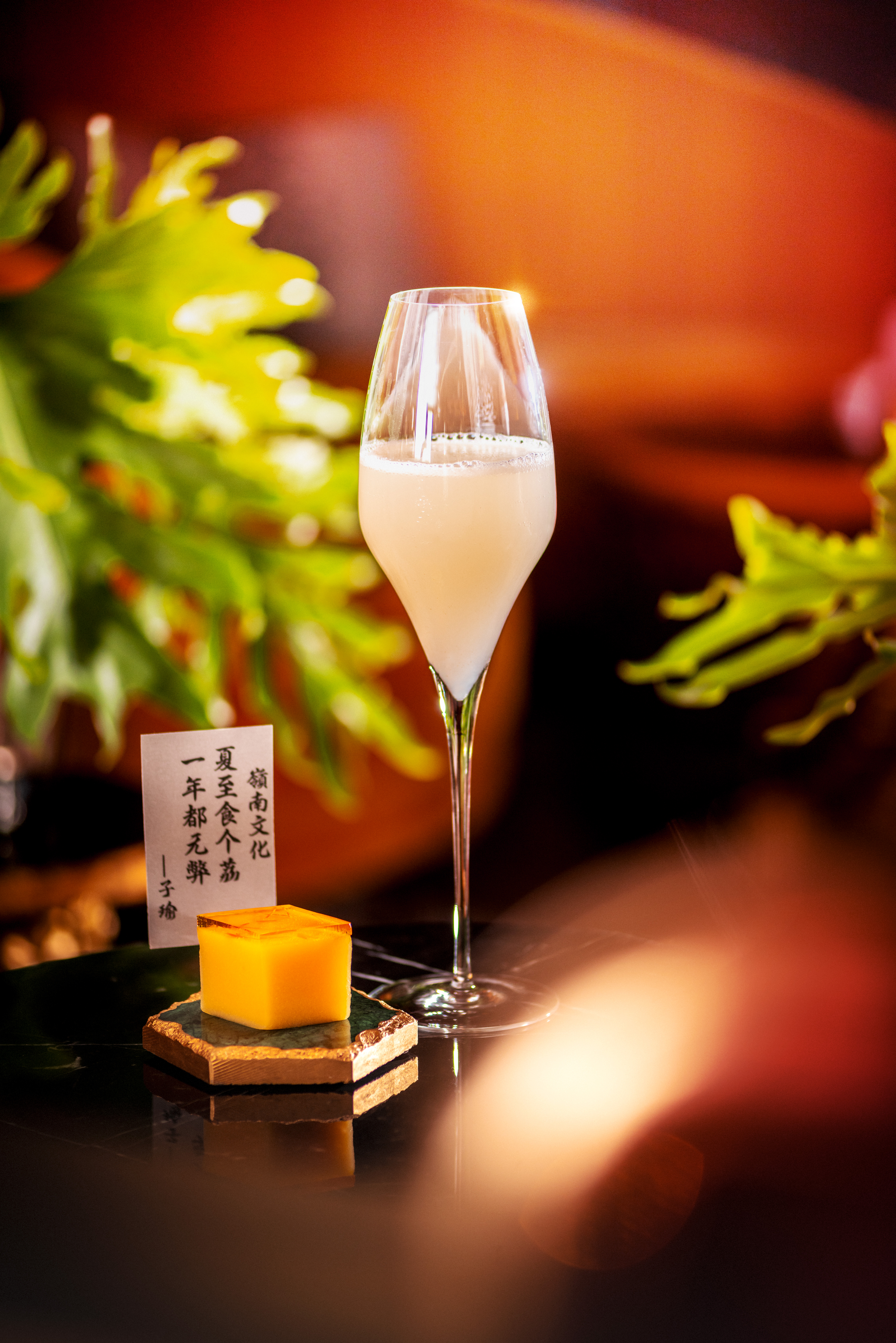
Summer Solstice; Photo credit: MGM Cotai
How often do you make changes or introduce new drinks to Bar Patuá’s menu?
It is seasonal so we update it every three months. Currently, until the end of June, we are offering spring cocktails. For Summer Solar Term next June we will update it again. In addition, for every Chinese festivity, we create themed cocktails. For the Dragon Boat Festival, I designed a cocktail with yellow rice wine that we offered for a limited time. Moreover, we will be showcasing my three award-winning cocktails at Bar Patuá for two weeks only. There’s always something new to sip! I must have created 300 or 400 cocktails in the last 10 years! Bar Patuá’s menu features 16 signature cocktails and there are even some we’ve left out of it but will still mix up upon request, such as Paul’s Negroni.
Imagine a guest coming to Bar Patuá at MGM Cotai for the very first time and looking for a kind of an omakase bar experience. What would you serve first? Would you suggest any particular bar bites pairing?
I would have to recommend one of our signature cocktails, after asking the guest about their personal taste and preferences. We need to know if the customer is into stronger or lighter cocktails, the mood on that specific day, and so on. We offer these five signature cocktails inspired by some of the restaurants at MGM Cotai and MGM Macau. If the guest really wants me to select the cocktail, I’d serve something not too light but also not too strong with kind of a sweet and sour taste, like our namesake cocktail Patuá. The presentation is impressive and the taste is an interestingly unique Chinese flavor. My Gin & Tonic is sure to dazzle guests too! I serve it with a halved grapefruit inside the glass and some herbs. I’m always happy to recommend a food pairing, we have a selection of fancy and innovative bar bites that go beautifully with our beverages at Bar Patuá.
Are there any special drinks or alcohol that are only available at Bar Patuá MGM?
We have been using Macau-made spirits by a local small distillery called the Ao Man huajiu (Macau spirits). This is the spirit we use in our Patuá cocktail. As far as I know, we are the only bar in town serving this huajiu cocktail in Macau, which is pretty special.
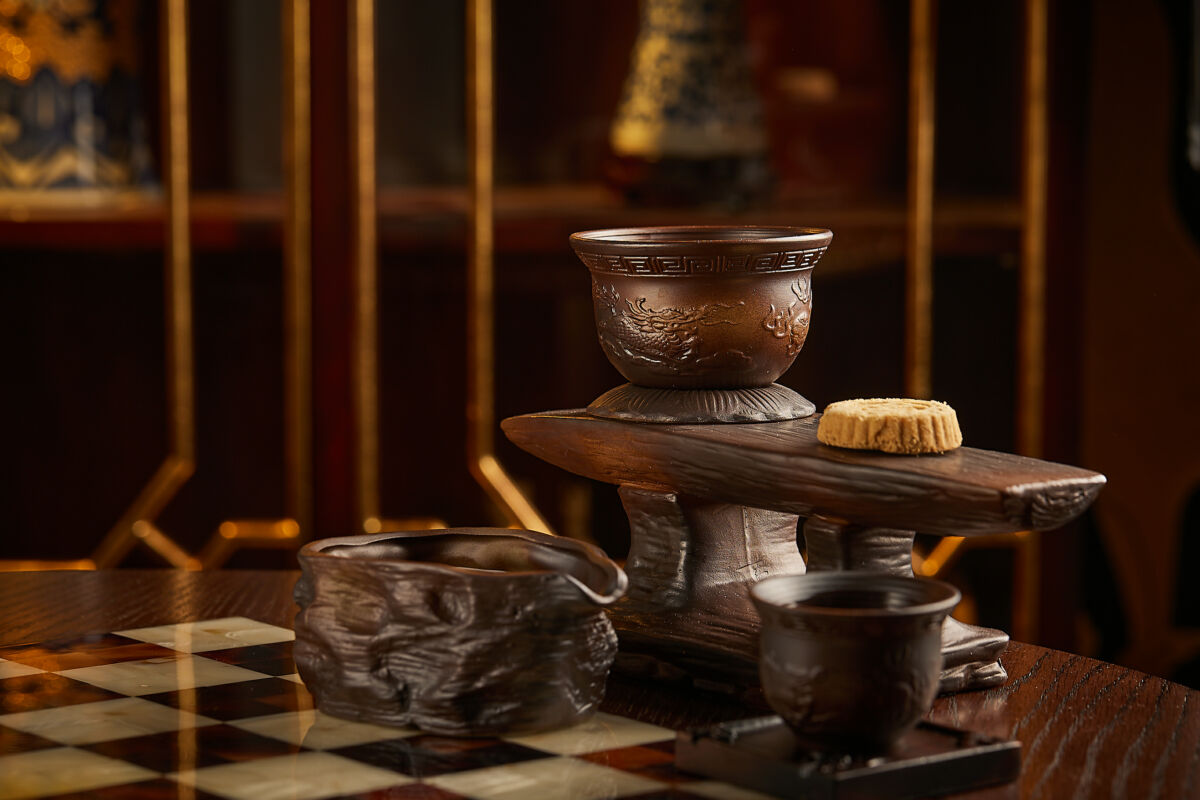
Patuá; Photo credit: MGM Cotai
What can guests expect from an experience at Bar Patuá at MGM? What do you hope guests will think and feel after they have left?
I think besides the sophisticated and elegant ambiance and unique cocktails, guests enjoy a curated experience that allows them to learn about the stories behind the cocktails and their spirits. You’ve just learned there is a small local distillery making huajiu, that is what I mean by learning. When I am behind the bar, I share my passion and pass on what I’ve learned over the years in the industry. As my guests’ cocktail knowledge deepens, they won’t be content with only a Long Island iced tea anymore! (laughs).
We are lucky to have a very steady group of regular guests to Bar Patuá and bring along friends. We even have cross-border guests from Guangzhou, Hangzhou, Nanjing that are real cocktail fans and visit us for the collection of Chinese cocktails found only here. These people know my work and support me.
What do you drink when at a bar?
I get this question a lot! Oddly enough, I don’t often drink cocktails. (laughs). Of course, I do a lot of cocktail tasting but I’ll usually go for a New Zealand sauvignon blanc or Champagne. I used to have lots of cocktails when I joined the industry but not anymore. I do enjoy a good gin & tonic though and a cold beer.
How do you spend your free time in town? Where do you like to go for a good meal in Macau?
I’ve been a Chinese grand tea master for seven years, so I travel to China, head to the mountains, pick my own tea leaves and dry them out. I do this every year during the tea season. I love doing this! I’m also an avid reader. I love to try out new Michelin-starred restaurants, explore different flavors. These experiences influence my cocktail creations too. I love dining out at Imperial Court in MGM Macau and Five Foot Road at MGM Cotai.
Taste Paul Zhang’s cocktail creations at Bar Patuá in MGM Cotai
Bar Patuá MGM Cotai, Avenida da Nave Desportiva, Cotai, +853 8806 8888, www.mgm.mo

